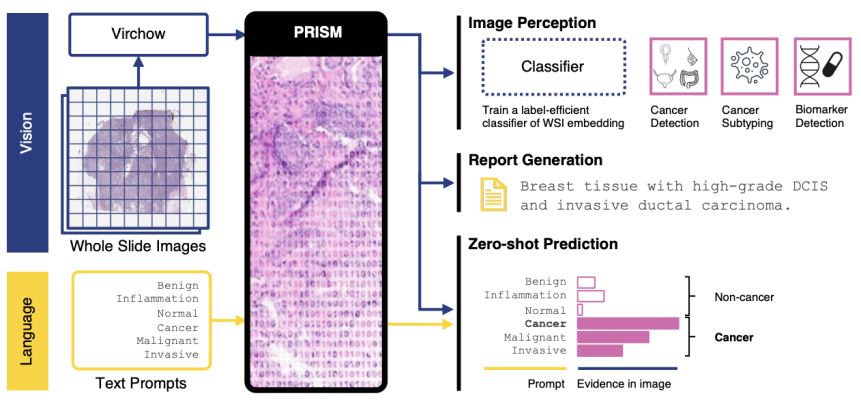Paige, a provider of digital pathology solutions and AI applications, has launched a new service line leveraging its Foundation Models. These models include a large multi-modal AI model in pathology and oncology. The new service is intended to assist AI developers, computational pathology product creators, and life sciences companies in developing AI models for applications such as research and development, clinical trials, and commercial needs. The initiative aims to contribute to advancements in precision oncology, with the goal of improving cancer diagnosis and treatment.

Image credit: Paige
Paige’s Foundation Models offer a distinct approach compared to traditional AI development methods. Conventional methods often require specific models to be trained for individual tasks using specific data, a process that is both time-consuming and resource-intensive. Paige’s models, however, can be adapted to a wide range of tasks without the need for individual training on each task. This flexibility has the potential to reduce the time and computational resources needed and lower the data requirements for developing advanced AI systems.
See also: The Growing Momentum for AI Foundation Models in Biotech and 12 Notable Companies
The new service line provides access to advanced pre-trained models, including updated versions of Virchow, described as the largest image-based AI model aimed at addressing cancer, and the newly released PRISM Foundation Model. PRISM, a multi-modal slide-level model, is designed to enhance reporting and generative capabilities, offering analytical data for multi-tissue and rare cancer detection, rare biomarker identification, cellular subtyping, spatial biology, and therapy response prediction. This specificity and accuracy were, reportedly, not previously accessible with older technologies.
- SEO Powered Content & PR Distribution. Get Amplified Today.
- PlatoData.Network Vertical Generative Ai. Empower Yourself. Access Here.
- PlatoAiStream. Web3 Intelligence. Knowledge Amplified. Access Here.
- PlatoESG. Carbon, CleanTech, Energy, Environment, Solar, Waste Management. Access Here.
- PlatoHealth. Biotech and Clinical Trials Intelligence. Access Here.
- Source: https://www.biopharmatrend.com/post/817-paige-introduces-multi-modal-ai-models-for-enhanced-precision-oncology-and-drug-discovery/
